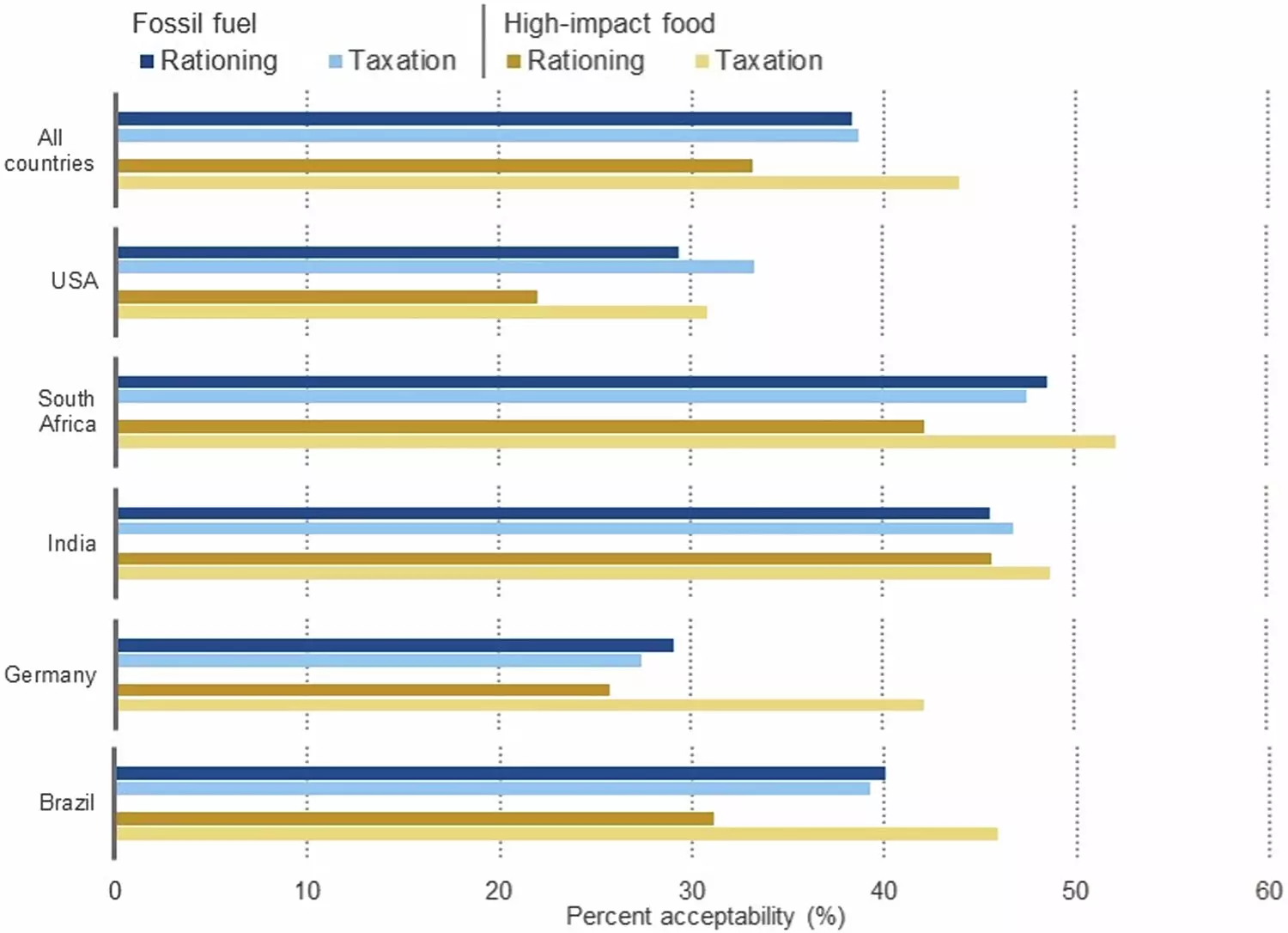As global warming continues to pose unprecedented challenges, innovative solutions to mitigate its impacts have become essential. One particularly striking strategy that has emerged from recent research is the idea of rationing goods, particularly those linked to high carbon emissions, such as meat and fossil fuels. A study conducted by researchers at Uppsala University sheds light on public attitudes toward such measures, revealing a willingness among nearly 40% of individuals to accept these restrictions in the face of climate change. This perspective invites a broader examination of the role rationing could play in future climate policy frameworks.
At first glance, rationing may seem draconian or overly restrictive, leading to fears of backlash and public discontent. However, the research highlights a crucial factor: perceptions of fairness. Oskar Lindgren, the lead researcher of the study, emphasizes that policies perceived as equitable are often more readily accepted by the public. By decoupling rationing from income and ensuring that it applies uniformly, there’s potential for fostering greater compliance among citizens who might otherwise resist such measures. This notion of fairness is paramount, as policies that feel just are more likely to receive public endorsement, indicating a need for inclusive dialogue about the implementation of rationing policies.
Comparison with Economic Instruments: Rationing versus Taxation
The findings from Uppsala University also juxtapose public acceptance of rationing with that of economic instruments such as carbon taxes. Interestingly, the study reveals that the acceptability of both methods is comparable—around 38% for fuel rationing and 39% for fuel tax. This statistic indicates a surprising level of openness toward rationing, despite its direct limitation on consumption. In fact, in nations like Germany, a noticeable number of individuals expressed greater opposition to fossil fuel taxes than to fuel rationing, sparking a conversation about how different types of policies resonate with public sentiment.
While the acceptance rate for rationing in some countries like India and South Africa was found to be higher compared to Europe and the U.S., this disparity suggests that cultural contexts significantly influence how people perceive regulatory actions. Younger and more educated demographics, who are generally more attuned to climate issues, also exhibit a more favorable outlook towards rationing, reflecting a vital demographic shift in environmental policymaking.
The findings from this extensive study signal a remarkable shift in the landscape of climate policy. Historically, focus has streamed toward fiscal measures like taxes, leaving rationing largely unexamined as a viable strategy. Yet as the evidence suggests, rationing has the potential to serve as a legitimate and effective policy tool. Encouragingly, many appear willing to adjust their consumption habits for the greater good, provided that there is a collective effort to do so. This reflects a growing consciousness about climate responsibility, where individuals recognize that their actions contribute to the broader environmental crisis.
Moreover, the successful implementation of rationing schemes, such as water conservation efforts seen in various regions, suggests a readiness among the public to embrace similar restrictions in their consumption patterns. The key lies in ensuring that these policies are designed thoughtfully, prioritizing equity and transparency to foster a strong communal spirit in tackling climate change.
The insights gained from Uppsala University’s study illuminate a path forward for understanding and utilizing rationing as an effective climate policy tool. However, much remains to be explored regarding the intricate public sentiments attached to such measures. Future research will need to dive deeper into the complexities of acceptance and the innovative configurations of rationing policies to ensure that they are both effective and just. As the urgency of climate action compels societies to rethink consumption, the discourse surrounding rationing, fairness, and public engagement will be pivotal in shaping a sustainable future.


Leave a Reply